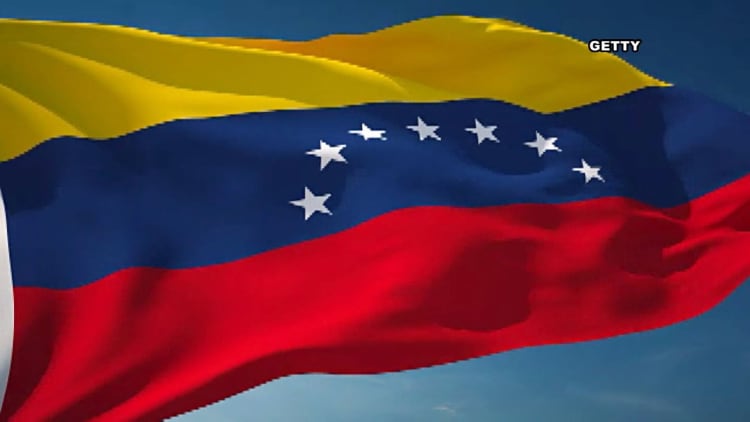The deteriorating security situation in Venezuela has opened more pathways to a potential collapse of the nation's lifeblood oil industry, experts say.
Last month, leftist President Nicolas Maduro installed a new constituent assembly empowered to rewrite the constitution and sweep aside critics. His regime has cracked down on opposition politicians and prosecutors. On Sunday, a group of soldiers and citizens attacked a military base in Valencia in the hopes of sparking an insurrection.
The deepening conflict and Maduro's march toward outright dictatorship threatens to escalate tensions among political factions and rip open divisions in the armed forces. Some observers fear that the country's ongoing economic and political crisis will descend into entrenched civil conflict.
We have corroborated alarming levels of anti-Maduro sentiment within the armed forces. However, that hasn't coalesced into a movement with effective leadership that is able to actually push out Maduro.Scott ModellRapidan Group managing director
To be sure, analysts say it's unlikely anti-government protesters will target the nation's oil fields and energy infrastructure. Attacks on assets owned by state oil giant Petroleos de Venezuela, S.A., or PDVSA are in no one's interest because oil revenue underwrites the federal budget and accounts for about 95 percent of export earnings, they say.
"That risk is pretty contained because whoever is in power needs that infrastructure and asset there. It's literally what feeds the people," said Risa Grais-Targow, director for Latin America at consultancy Eurasia Group.
But experts say instability could further erode PDVSA's ability to operate. Venezuela's oil output has long been in decline, but three years of soft oil prices have accelerated the drop. PDVSA is now struggling to maintain its oil fields and equipment, creating a vicious circle of funding shortfalls, waning production and weak revenue.
The primary risk is that international oil companies pull out of the country and PDVSA's workforce strikes or stays home as tensions escalate, analysts say.

The foreign oil companies that jointly operate and service Venezuela's oil fields have already begun paring back staff. Norwegian oil company Statoil and Italian driller Eni say there has been no change to their operations despite some foreign staff departing Venezuela. Chevron, Total and Repsol declined to comment or did not return requests for comment.
PDVSA can keep pumping for now because its workforce is overwhelmingly made up of Venezuelans. But analysts do not dismiss the possibility that domestic workers will stop showing up to oil fields.
"This country is sitting on a volcano, and anything can start it if the government handles something wrong," said Thomas O'Donnell, a fellow specializing in global energy systems at the American Institute for Contemporary German Studies.
The catalyst could be something as simple as a widespread electricity outage in an oil-producing region that sparks strikes or protests.
O'Donnell said strikes could also erupt if PDVSA fails to pay its workers, many of whom are scraping by as soaring inflation erodes their purchasing power. Work stoppages could occur even if the opposition finds its way to power, as unions seek to extract a better deal for it workers from new leaders, said Eurasia Group's Grais-Targow.

It is crucial for Maduro to maintain the loyalty of the armed forces, but signs are emerging that the lower and middle rungs of the military are splintering, said Scott Modell, managing director at risk consultancy the Rapidan Group.
"We have corroborated alarming levels of anti-Maduro sentiment within the armed forces. However, that hasn't coalesced into a movement with effective leadership that is able to actually push out Maduro," he said. "We're just not there yet."
The nightmare scenario is open fighting between elements of the armed forces, leading to a rapid erosion of security that causes workers to stay in the relative safety of their homes.
Rapidan Group believes Maduro's regime will last the year, but the path to 2018 is embedded with risk, with open questions about how strident the new constituent assembly will be, how Maduro's opposition will regroup and what the United States' response will be.
Modell notes that the Rapidan Group had forecast Maduro would back off elections to create the constituent assembly, but he went ahead despite international condemnation and threats of U.S. sanctions.
"When he went through with it, that's a signal that these guys just continue with the playbook and it's all about extending their own time in office," he said.


